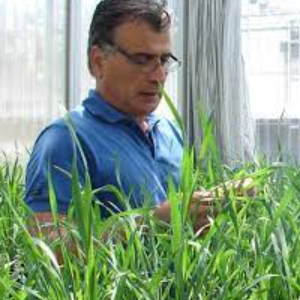Title : A novel approach to enhancing grain yield in acid soils prone to extreme water regimes
Abstract:
Toxicities of Al, Mn and Fe in acidic soils (40% of global arable land) are major constraints to growing intolerant crops. The transiently induced high-to-toxic concentrations of Al, Mn and Fe under reduced soil conditions during wet season (waterlogging) hinder root growth, delay maturity and, if coincided with terminal drought, exacerbate the yield loss. Soil acidification is on the rise, and the future climate changes predicted to include intense winter rainfall (inducing reduced soil conditions), followed by high temperature and drought toward crop maturity, accentuate the importance of solving the problem of poor tolerance of most crops and varieties to ion toxicities induced in acidic soils subjected to transient waterlogging. We have pioneered the idea of improving the wheat grain yield in acidic soils prone to transient waterlogging and terminal drought via enhanced tolerance to combined ion toxicities (Al, Mn and Fe). We have provided evidence that improved tolerance to individual ion toxicities can increase grain yield by 10% in acidic soils prone to transient waterlogging (Khabaz-Saberi and Rengel 2010; Khabaz-Saberi, Barker and Rengel, 2012) and terminal drought (Khabaz-Saberi, Barker and Rengel, 2014) following optimisation of screening techniques for tolerance to ion toxicities in wheat germplasm (Khabaz-Saberi et al. 2010a; Khabaz-Saberi et al. 2010b). Our research has demonstrated that genotypes tolerant to ion toxicities responded better to lime application than intolerant genotypes (Khabaz-Saberi, Barker and Rengel, 2014) and that induced ion toxicities are not confined only to waterlogged acid soils in the high-rainfall zones, but also occur in the low-to-medium rainfall areas during wet seasons. We have produced the required tools, including mapping populations from parents distinct in ion toxicities, for producing molecular markers to be used in marker-assisted selection. Moreover, pyramiding tolerance to multiple toxicities in commercial wheat genotypes will widen their environmental adaptability and result in increased yields under a variety of soil/water conditions.
Take Away Notes:
• The target audience will learn about dynamic soil-water-plant interactions occurring in acidic soils that constraint crop growth in 40% of world arable land, with a particular emphasis on the changes in soil chemistry under waterlogged (reduced) compared with aerated (oxidized) conditions.
• The audience will be able to learn and use our approach of tackling the constraints from early observation of the phenomenon, its validation, substantiation of the importance and provision of the required advanced tools to alleviate similar problem.
• Our genetic approach to solving the problem of poor crop growth on acidic transiently-waterlogged soils (including germplasm screening, mapping population production and trait pyramiding in commercial varieties) will enhance the knowledge of using theoretical genetics knowledge in the real-world situations where the success will translate into huge increases in agricultural profitability and sustainability.
• The output of this research could be used in teaching (soil science, plant nutrition, plant breeding and molecular genetics) to update and revise the current knowledge and approach of tackling the constraint of growing crops in acid soils successfully and profitably.
• Our innovative integrative approach could be employed in research addressing problems associated with environmental adaptability in wheat and other major crops.
• We do also welcome collaborative work toward progression and accomplishment of the current research work which is currently hindered by lack of research funding.


